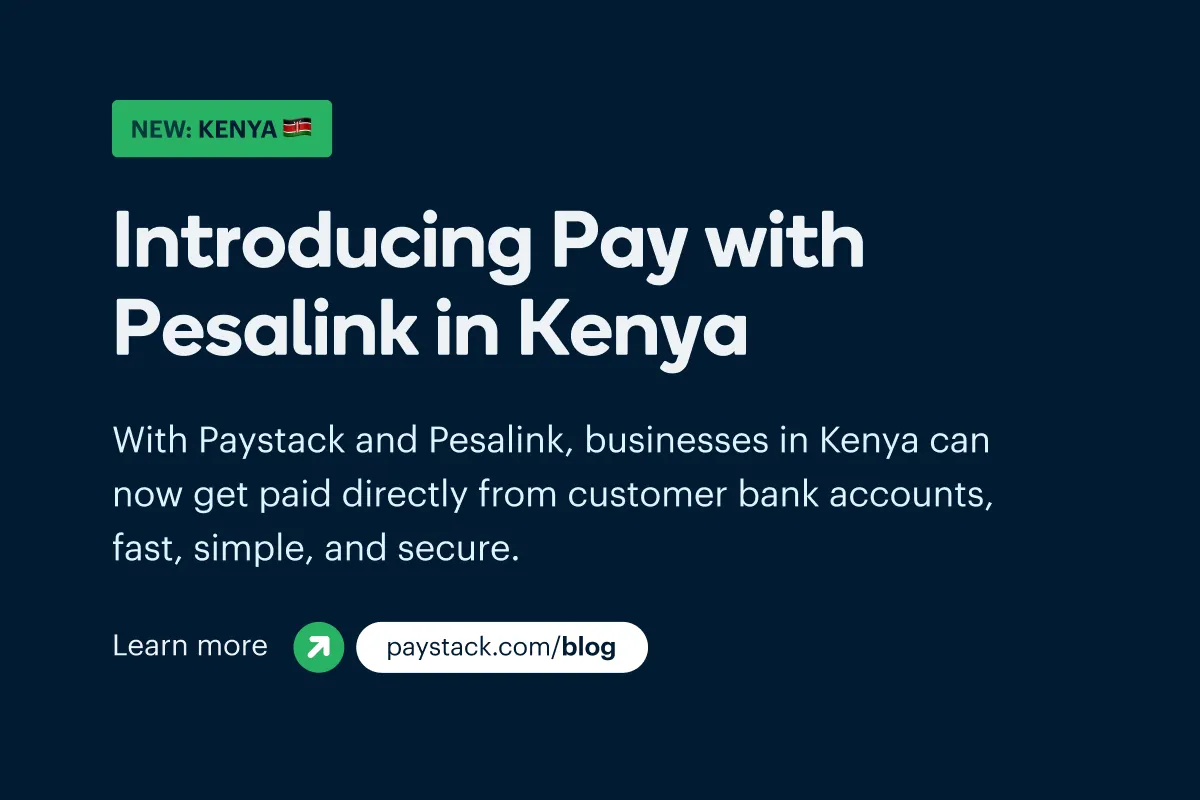- 👨🏿🚀TC Daily
- Posts
- FNB goes Globba
FNB goes Globba
Hot Take: Too many yapping, few doings.


Good morning. ☀️
LemFi, the remittance fintech that lets African immigrants access credit, is having quite the year. After two marquee acquisitions so far, the startup wasted no time in rolling out products for Africans in the diaspora.
When it brought “send now, pay later” to the UK to give immigrants access to credit for sending money home, we discussed the potential to scale the product across other European markets. But growth took LemFi to Nepal first: it recently secured Central Bank of Nepal approval to partner with Esewa, a widely-used digital finance app that processes about NPR 338 million ($2.4 million) in daily transactions. Esewa and Khalti, another digital payments app, process more than 80% of all online transactions in Nepal today.
The partnership will allow residents in North America and Europe to send money to Nepal. LemFi is scaling at breakneck speed to tackle remittance bottlenecks across multiple markets, and that’s really cool. In fintech, partnerships are the name of the game.
Let's dive into today's edition.
Fintech
FNB launches Globba, its cross-border payments app

Unlike Paystack’s Zap, there was no fancy Apple-esque event to mark the launch of Globba, a new cross-border payments app which went live on Tuesday. But like Zap, First National Bank (FNB), one of South Africa’s “big four” banks, said it took a year in the making to push the product.
The result is a cross-border payment service that allows users to send money to over 120 countries from inside the FNB app, with transfers landing in minutes and fees starting at R30 ($1.75), less than a third of what it used to cost to send money abroad.
A game-changer? Globba, available on FNB and Rand Merchant Bank (RMB) private banking apps, plugs directly into Mastercard Move, giving users the choice to send funds to bank accounts, mobile wallets, or cash pick-up points. But beneath the warm talk of “financial inclusion” and “accessibility” from FNB’s personal banking CEO, Lytania Johnson, sits a bigger play.
State of play: FNB’s holding company, FirstRand, has been laying digital bricks for months. It recently acquired a 20.1% stake in Optasia, an AI-powered fintech that powers lending and credit-underwriting for banks and telecom operators like MTN in several countries.
FirstRand said the deal was “strategic,” and that’s starting to look prophetic. Optasia’s technology could easily plug into Globba’s infrastructure, allowing FNB to layer microcredit on top of low-cost transfers. As a merchant, imagine borrowing instantly to pay a supplier in Singapore when cash flow runs thin.
Zoom out: FNB is clearly pivoting toward a more digital future. It’s also eyeing further expansion into markets like Kenya, where mobile money reigns supreme. All told, Globba looks less like another remittance product and more like FNB’s opening move to take on incumbents in the digital cross-border payments space, from Capitec to Old Mutual.
Powering businesses across Africa to pay and get paid in local currencies.

With Fincra, businesses, startups, global enterprises and platforms can easily send and receive payments in multiple African currencies, empowering trade, and growth across the continent. Create your account in 3 minutes.
Payments
Rwanda and Tanzania begin talks to link national payment systems

In more cross-border payments news, Rwanda and Tanzania have begun technical talks to link their national retail payment systems, a move that could make sending money across East Africa as easy as paying a local merchant.
State of play: The plan connects Tanzania’s Instant Payment System (TIPS) with Rwanda’s National Payment Switch (RSWITCH), allowing individuals and businesses to transfer funds instantly between bank accounts and mobile wallets, cutting out the sluggish, expensive processes that currently slow down regional trade.
Between the lines: The project, funded by the World Bank under the Eastern Africa Regional Digital Integration Project (EARDIP), is designed as a proof-of-concept pilot to test the technical and operational feasibility of a direct cross-border switch. It’s the most concrete step yet toward a single, frictionless payment ecosystem across the East African Community (EAC). This week in Kigali, technical teams from both countries’ central banks, national payment systems, and partners like AfrikaNenda and the Mojaloop Foundation met to hash out the details of interoperability, regulation, and governance.
For everyday users, the promise is simple: faster, cheaper transfers to family or friends across borders. For businesses, it means instant settlement that could unlock smoother regional trade. The blueprint created here will likely expand to other EAC member states, forming the backbone of an integrated digital market.
Big on collaboration: This builds on Rwanda’s recent gung-ho collaborations across the continent. In October, the country signed a memorandum of understanding (MoU) with Ghana to enable licence passporting between the two nations, allowing fintechs and digital finance operators licenced in one country to operate in the other without reapplying for approval.
Known for its tech-forward approach, Rwanda is also piloting its own central bank digital currency (CBDC), with policymakers exploring how digital assets could streamline future cross-border trade. In many ways, the Tanzania link is the latest expression of Rwanda’s broader vision for a borderless, digitally connected Africa.
Paga is in USA

Paga is live in the U.S.! Whether you’re in Lagos or Atlanta, manage your money effortlessly. Send, Pay, and Bank in both Naira and US Dollars, all with Paga. Learn more.
Startups
YC-backed Moni just got a glow-up

Moni, a Y Combinator-backed Nigerian fintech offering community banking services, just stepped out of the salon with a new name and two strategic acquisitions on its arm.
Say hello to Rank, the same community-powered fintech. In addition to acquiring a new name, Rank is stepping out with bigger ambitions with its acquisition of AjoMoney, the group-savings platform rooted in social trust, and Zazzau Microfinance Bank, which now operates as Rank Microfinance Bank.
Now we don’t know how much this deal costs (they didn’t tell us), but Zazzau MFB is listed as Tier 2 MFB, which commands a licensing fee of ₦250,000 ($173.94) and a minimum paid-up capital of ₦50 million ($34,788).
Why this new look? This is all part of Rank’s effort to offer a range of regulated financial services beyond savings, including payments and investment products. The company wants to help communities save, spend, invest, and move money together.
Reach for the crowded sky: This move puts Rank in a market where players like PiggyVest and Cowrywise have long focused on individual wealth-building for close to a decade. But Rank wants to build strength by doubling down on communities that already build wealth together offline. Rank just wants to upgrade that behaviour into structured, high-yield financial power.
Paystack introduces Pay with Pesalink in Kenya!

With Pesalink and Paystack, businesses in Kenya can now get paid directly from customer bank accounts. Learn more here 👉
M&A
South Africa’s payments just got a new power player

In the spirit of acquisitions, South Africa just made a strategic play in the payments world.
The South African Reserve Bank (SARB), the country’s central bank, has taken a 50% stake in PayInc, the 50-year-old company handling electronic transactions in South Africa. PayInc, previously known as BankservAfrica, used to be owned primarily by commercial banks, including Access Bank, African Bank, and Citibank SA, and the central bank is now sitting at the same table.
What does this mean? Central banks rarely take equity in private financial infrastructure. This move gives SARB control and oversight over payment rails, a direct path to modernise the system, and a way to extend financial inclusion to more users. It can help SARB make payments faster, safer, and more accessible, while fostering trust across banks and everyday users.
So, what’s the play here? Beyond the fluff of modernisation and making payments faster, this could easily be about control and strategic influence. By owning half of PayInc, SARB can directly shape how money moves across the country, set standards, reduce systemic risk, and ensure infrastructure serves national interests, a power move that gives the central bank a seat where decisions about speed, security, and accessibility are made.
HOT TAKE
We talk a lot, that's why we love to be at mixers. There's too many yapping and few doing. A lot of tech people love to hear themselves talk. I'm not saying people should talk less, but your talking and doing should be on par. I want a world where mixers are actually shaping how we do the work that we’re doing in our respective companies or industries.
– Joel Babatunde "Oga HR"
AI in a Nutshell gives you weekly AI knowledge and insights

Want to stay close to AI but hate long reads? AI in a Nutshell gives you weekly AI knowledge, news, tools, and insights - short, smart, and fun. Perfect for curious (but lazy) readers who still want to stay ahead. Subscribe here.
CRYPTO TRACKER
The World Wide Web3
Source:

Coin Name | Current Value | Day | Month |
|---|---|---|---|
| $102,961 | – 2.83% | – 10.80% | |
| $3,429 | – 4.08% | – 17.14% | |
| $2.40 | - 4.73% | - 5.00% | |
| $156.97 | – 6.29% | – 20.54% |
* Data as of 00.00 AM WAT, November 12, 2025.
Opportunities
- The Breez Tech worldwide developer challenge is open to developers across Africa, with active communities in cities such as Lagos, Nairobi, Accra, Kampala, Johannesburg, Abuja, Douala, and Goma, among others. The competition invites participants to integrate Bitcoin into open-source apps using the Breez SDK – Nodeless for a share of the $25,000 prize pool and opportunities including residencies at DraperU and PlebLab. Submissions close December 16; winners will be announced in January. It's #TIME2BUILD. Register here.
- Every startup has a story worth hearing. My Startup in 60 Seconds by TechCabal offers founders a one-minute spotlight to share their vision, challenges, and achievements. Beyond visibility, it connects you to investors, customers, and Africa’s tech ecosystem. Apply to be featured or explore other TechCabal advertorial opportunities. This is a paid opportunity.
- Founder Institute Lagos, the Lagos chapter of the world’s largest pre-seed accelerator, is set to graduate its 12th Cohort at a physical ecosystem gathering themed “Build. Impact. Scale: Fueling Africa’s Growth through Scalable Innovation.” The event will celebrate 18 founders who have completed a rigorous and rewarding 14+ week virtual accelerator program, joined by operators, investors, and key ecosystem players. Register here to attend.

Written by: Emmanuel Nwosu and Opeyemi Kareem
Edited by: Emmanuel Nwosu & Ganiu Oloruntade
Want more of TechCabal?
Sign up for our insightful newsletters on the business and economy of tech in Africa.
- The Next Wave: futuristic analysis of the business of tech in Africa.
- TC Scoops: breaking news from TechCabal
- Francophone Weekly by TechCabal: insider insights and analysis of Francophone’s tech ecosystem
P:S If you’re often missing TC Daily in your inbox, check your Promotions folder and move any edition of TC Daily from “Promotions” to your “Main” or “Primary” folder and TC Daily will always come to you.

How did you find today's edition of #TCDaily? |



